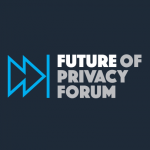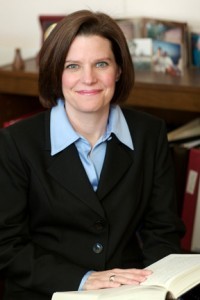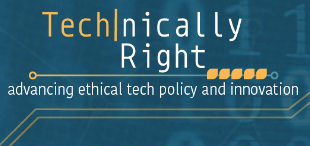 UNC’s recently launched Center for Information, Technology, and Public Life (CITAP) is looking for faculty and students to join its growing community, including faculty research fellows, faculty affiliates, and graduate student affiliates.
UNC’s recently launched Center for Information, Technology, and Public Life (CITAP) is looking for faculty and students to join its growing community, including faculty research fellows, faculty affiliates, and graduate student affiliates.
CITAP is a bold initiative at UNC dedicated to researching, understanding, and responding to the growing impact of the internet, social media, and other forms of digital information sharing. CITAP’s goals include tackling broad research questions with real-world implications for information gathering, social media regulation, democratic governance, journalism, and civic understanding. Researchers and affiliates will work to develop a comprehensive understanding of information environments that will serve as a baseline for emergent research focused on the interaction of information and technology, particularly in the context of misinformation, partisanship, polarization, propaganda, and political institutions.
UNC CITAP Faculty Research Fellow
CITAP is seeking a Faculty Research Fellow to start in August 2020 and serve for one academic year. The position is restricted to University of North Carolina at Chapel Hill faculty. The Faculty Research Fellow will receive $15,000 in research funds, and will be expected to attend CITAP events and give a public presentation of their work at the end of the fellowship.
The successful applicant will join a vibrant research community anchored by CITAP’s four principal researchers—Deen Freelon (Hussman School of Journalism and Media), Daniel Kreiss (Hussman), Alice Marwick (Dept. of Communication), and Zeynep Tufekci (School of Information and Library Sciences)—the affiliated UNC Center for Media Law and Policy (David Ardia and Tori Ekstrand), and two Senior Faculty Researchers, Tressie McMillan Cottom (SILS) and Shannon McGregor (Hussman).
CITAP affiliates will meet regularly for research updates and internal presentations.
To apply, please email a one-page proposed research project that complements the aims of the center and the work of its scholars along with a CV to CITAP Principal Alice Marwick at amarwick@unc.edu. The deadline to apply is Sept. 1, 2020.
UNC CITAP Faculty Affiliates
Faculty Affiliates can come from a broad range of academic and research institutions, especially in North Carolina. We invite applications from people working on issues related to CITAP, broadly focused on the intersection of technology and media, platforms, misinformation, partisanship, polarization, propaganda, political institutions, and journalism. Affiliates may collaborate with CITAP researchers on topics of relevance to its mission and participate in CITAP events, and will be listed in the “Faculty Affiliates” section of the CITAP website.
We invite those with CITAP faculty affiliations to attend CITAP events, collaborate with our researchers and graduate students, and join our extended community in resource and information sharing.
To apply, please email a bio, CV, and list of relevant publications to CITAP Principal Researcher Daniel Kreiss at dkreiss@email.unc.edu.
UNC CITAP Graduate Student Affiliates
Graduate Student Affiliates can come from a broad range of academic and research institutions, especially in North Carolina. We invite applications from people working on issues related to CITAP, broadly focused on the intersection of technology and media, platforms, misinformation, partisanship, polarization, propaganda, political institutions, and journalism. Affiliates may collaborate with CITAP researchers on topics of relevance to its mission and participate in CITAP events, and will be listed in the “Faculty Affiliates” section of the CITAP website.
We invite those with CITAP graduate student affiliations to attend CITAP events, collaborate with our researchers and graduate students, and join our extended community in resource and information sharing.
To apply, please send a short cover letter explaining how your research interests relate to the work of CITAP, bio, CV, and list of relevant publications to CITAP Principal Researcher Daniel Kreiss at dkreiss@email.unc.edu.


 Are you interested in pursuing a career in media law or policy? Are you worried that you won’t be able to take that plum summer job in Atlanta, Los Angeles, New York, or Washington, because it’s just too expensive to live there. Well, the Center for Media Law and Policy is here to help. For the ninth year in a row, the Center will be providing grants to UNC law and graduate students who have a summer job in the field of media law or media policy.
Are you interested in pursuing a career in media law or policy? Are you worried that you won’t be able to take that plum summer job in Atlanta, Los Angeles, New York, or Washington, because it’s just too expensive to live there. Well, the Center for Media Law and Policy is here to help. For the ninth year in a row, the Center will be providing grants to UNC law and graduate students who have a summer job in the field of media law or media policy.
 Tomorrow, I will be joining some fantastic colleagues at Duke University to discuss the legal and ethical issues associated with cyber searches and data privacy. The panel is part of the Kenan Institute for Ethics’s “
Tomorrow, I will be joining some fantastic colleagues at Duke University to discuss the legal and ethical issues associated with cyber searches and data privacy. The panel is part of the Kenan Institute for Ethics’s “